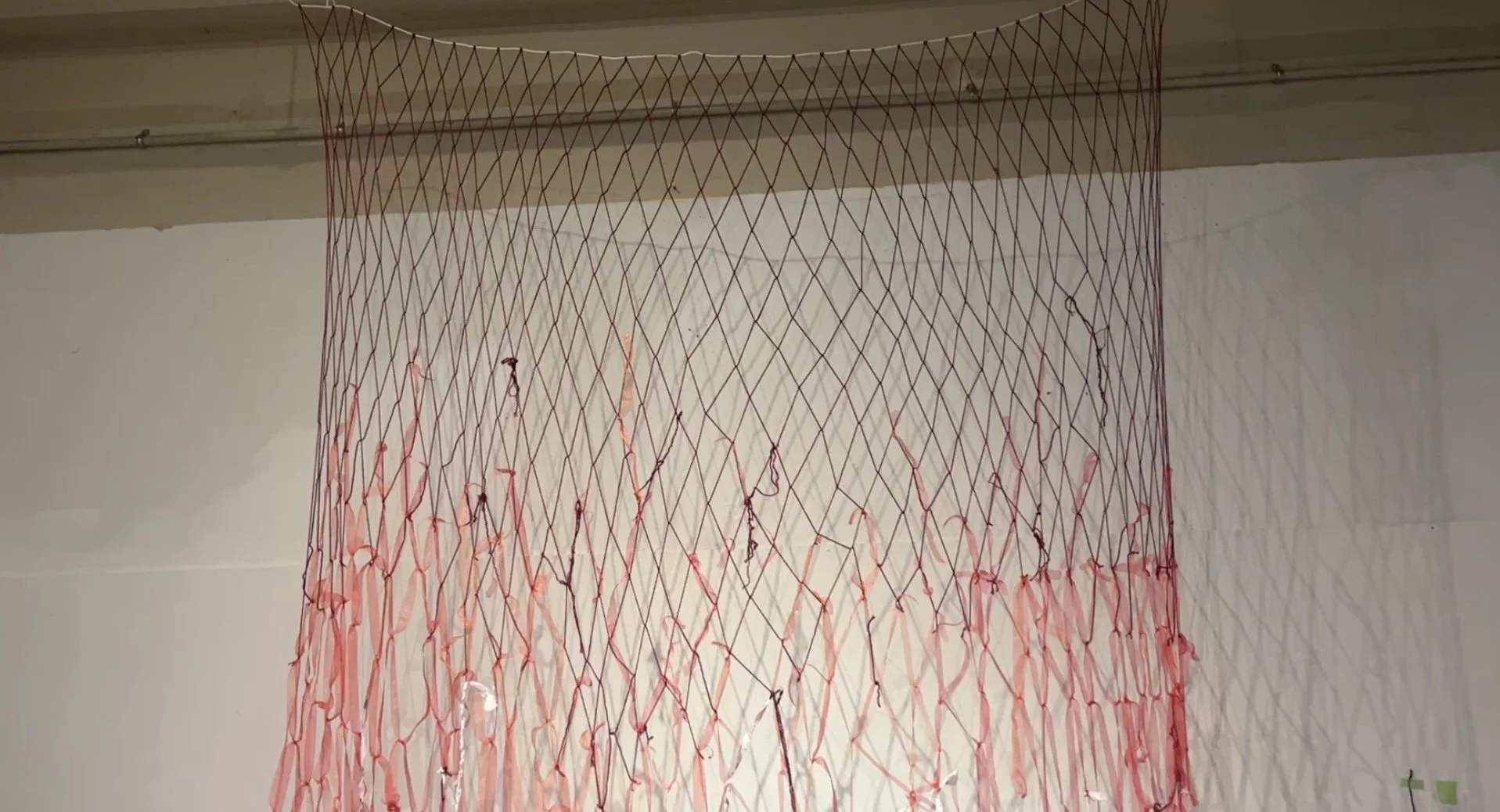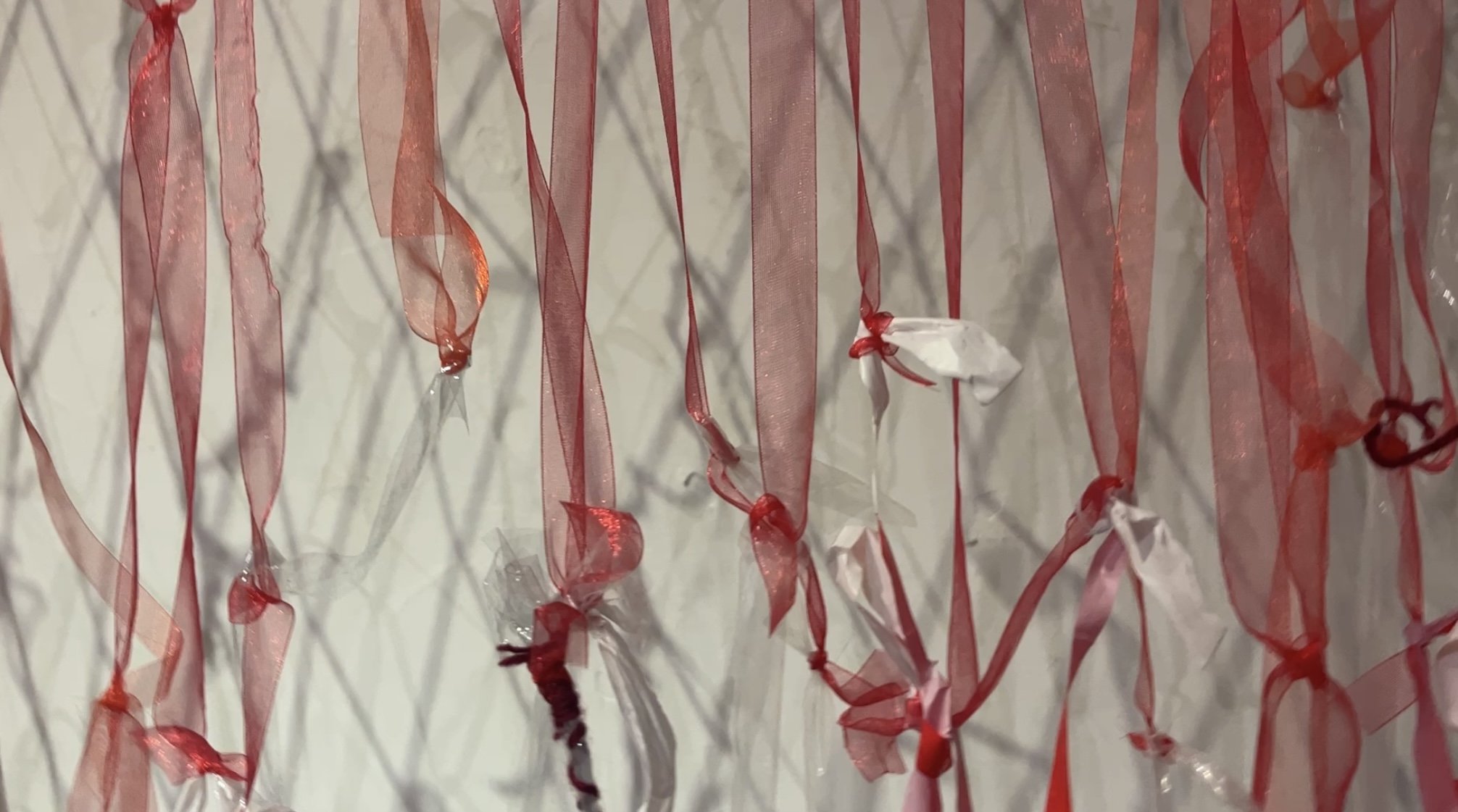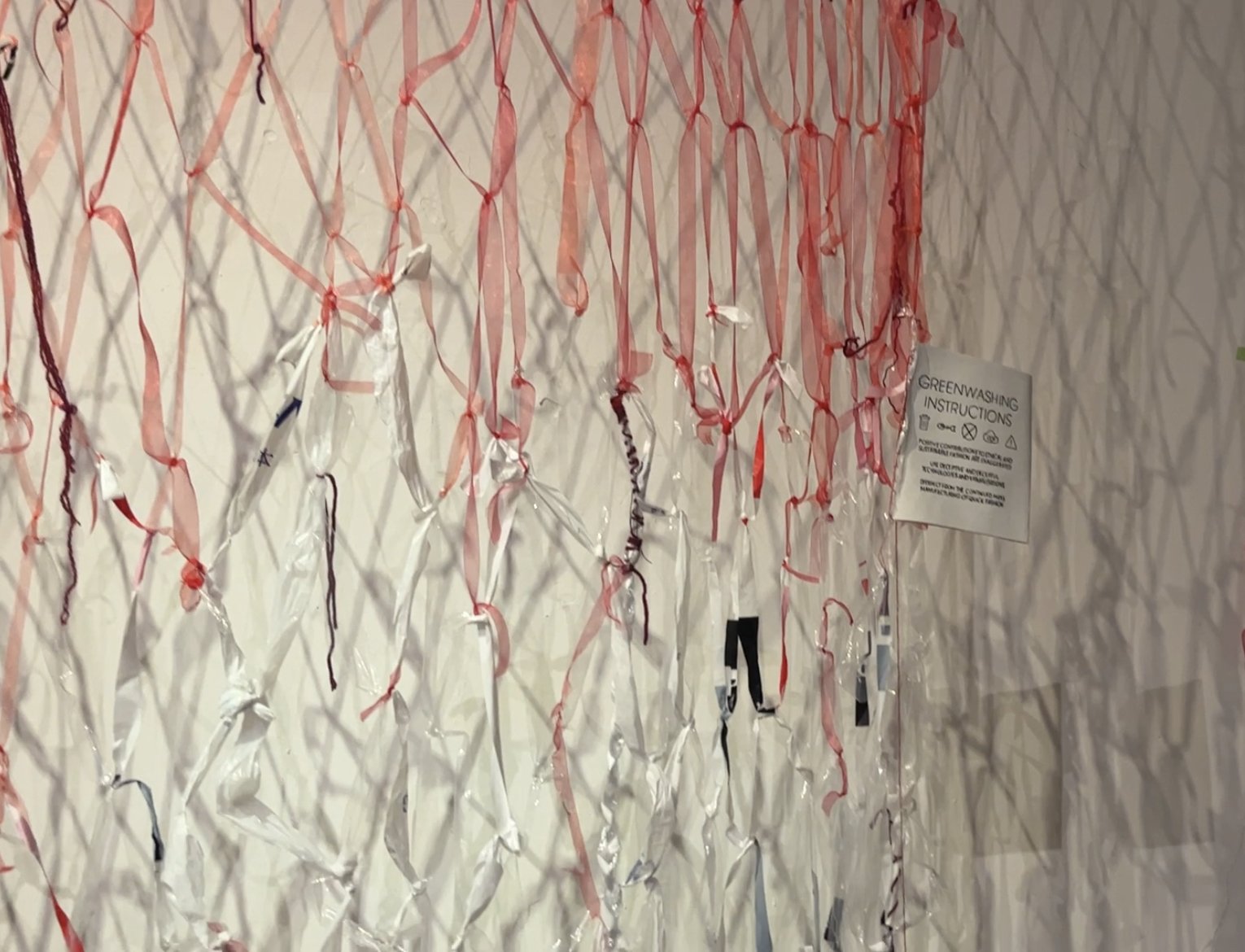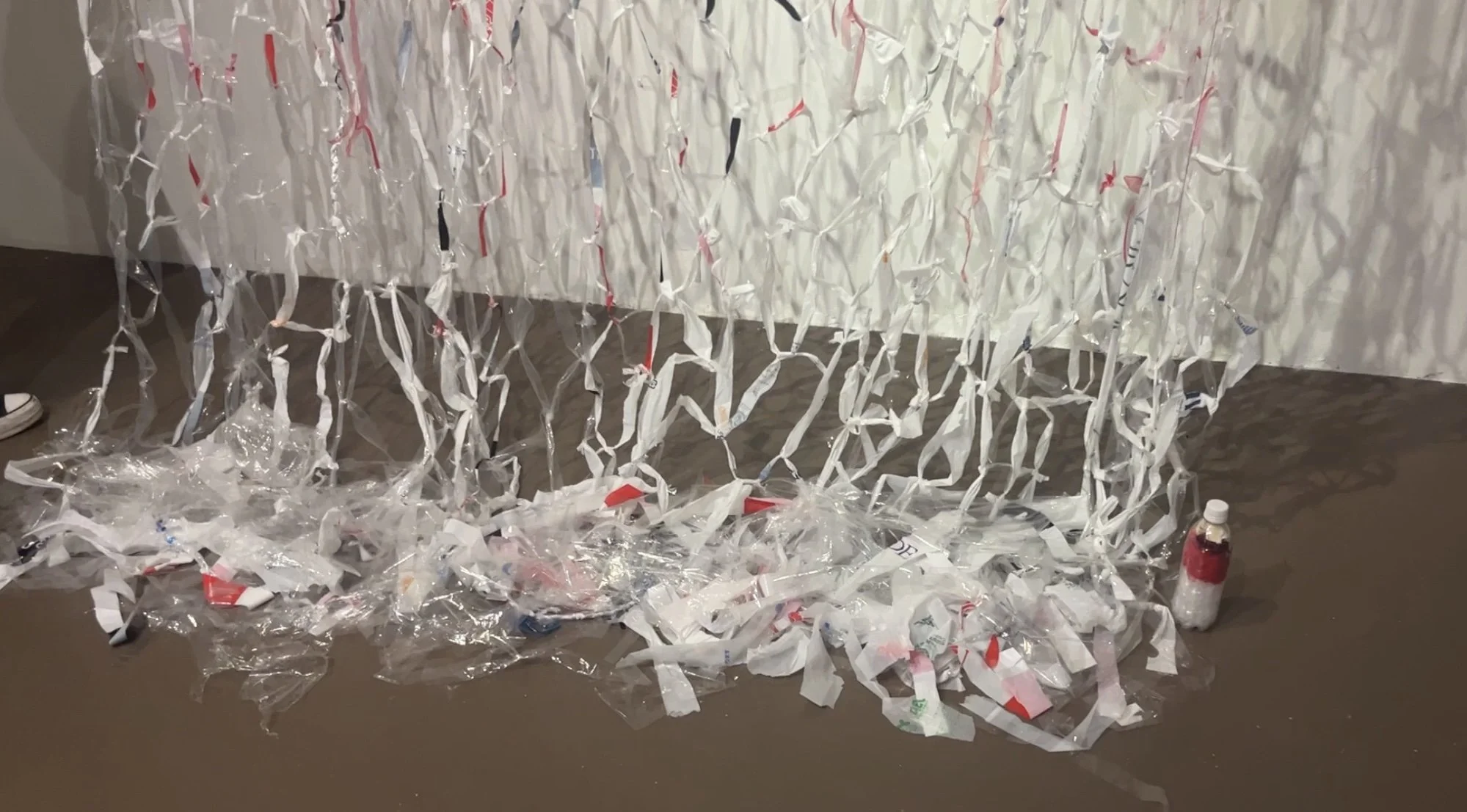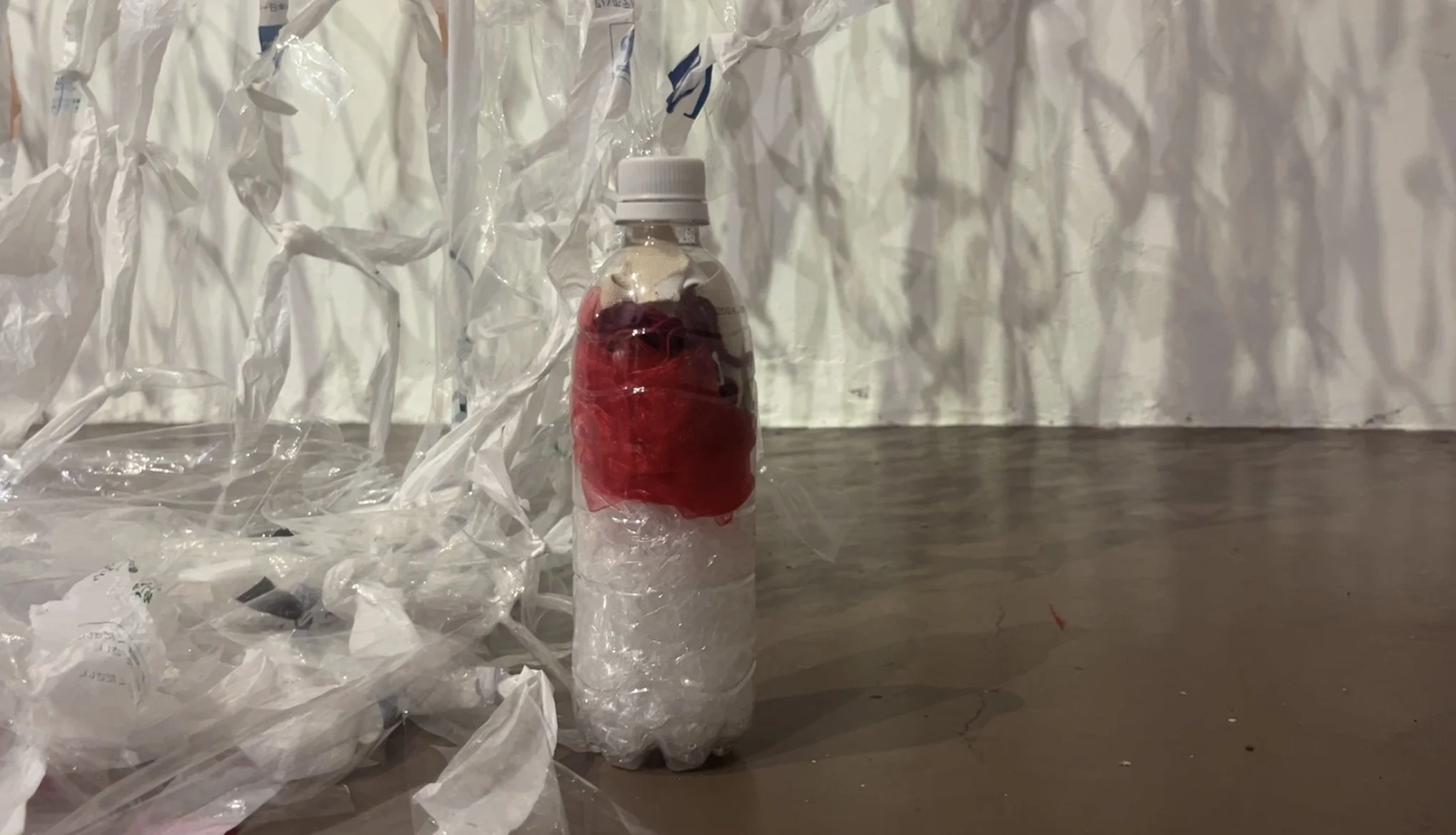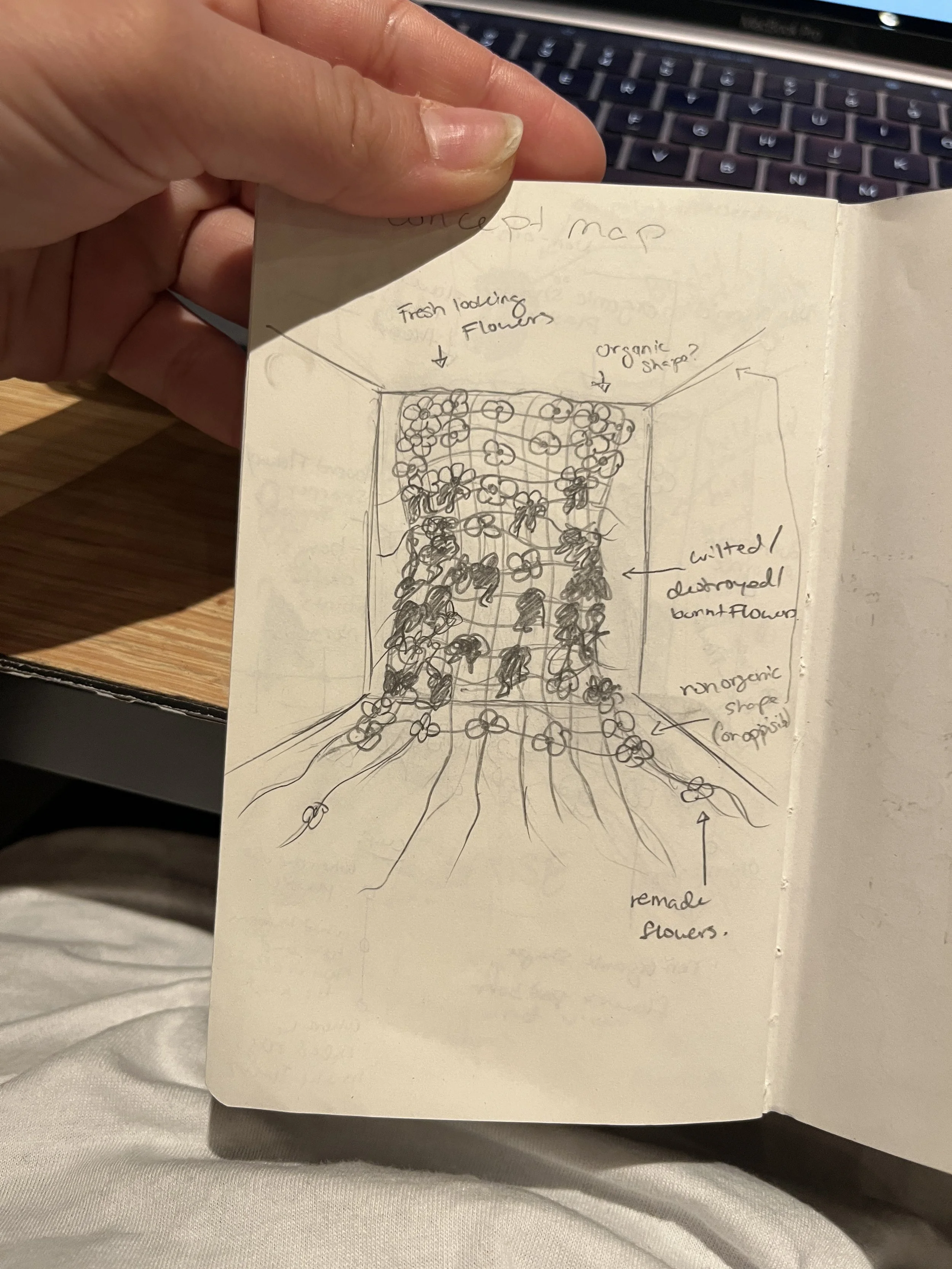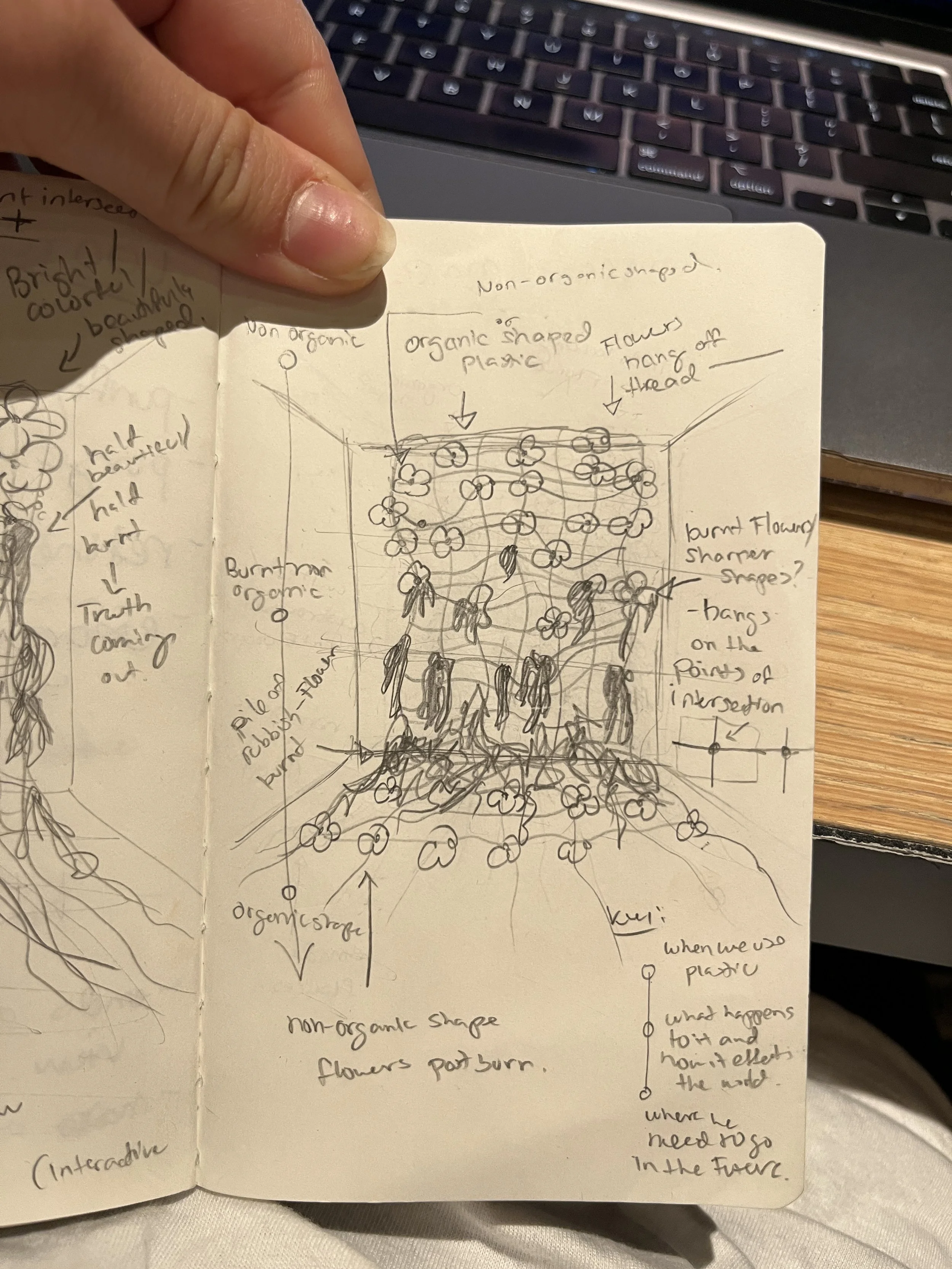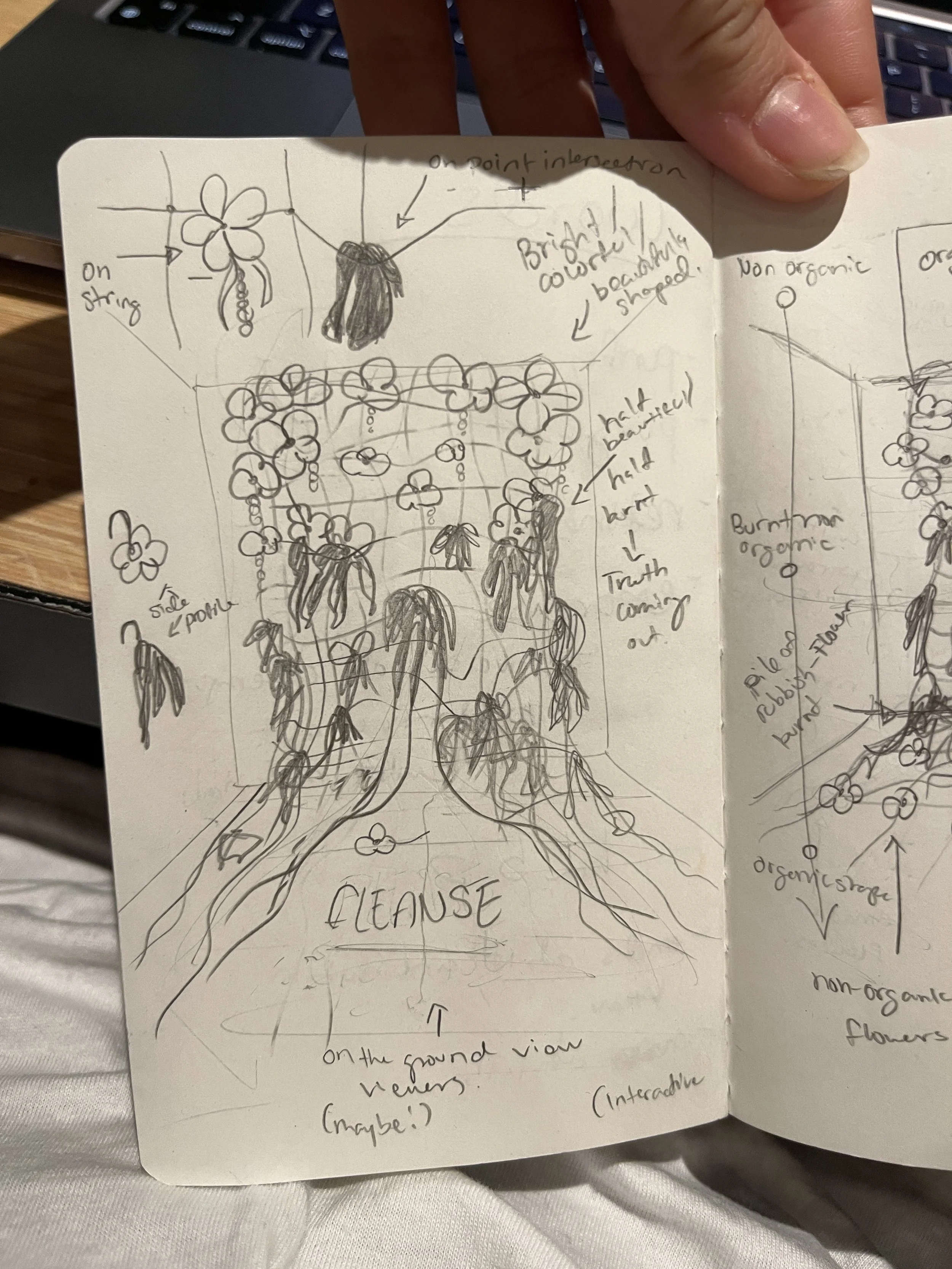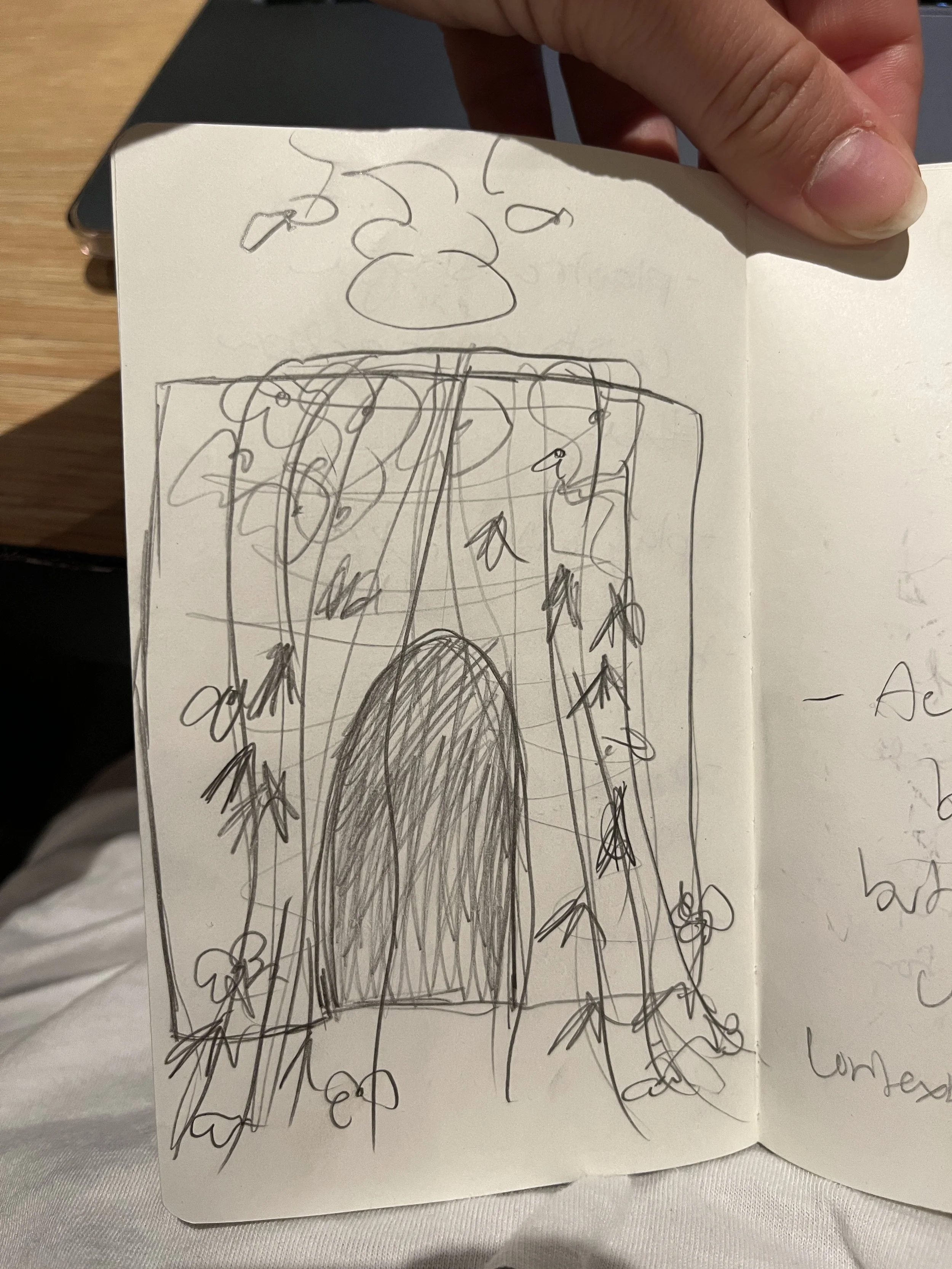Translocated
This project, a collaborative effort between Deakin University, Nuevo, and UNESCO City of Design Nagoya, was part of the 2023 exhibition ‘Translocated’ in Nagoya, Japan. The focus was on "Translocating" contemporary textile and fiber innovations from Geelong, Australia, to a Japanese audience. Extensive research into the textile histories of both cities informed the initial stages of the project, highlighting connections between Geelong and Nagoya's practices. Our team presented these findings, along with conceptual sketches, to address the overconsumption of fast fashion. After refining our ideas through peer feedback, we constructed an installation in Nagoya that blended organic and synthetic materials, symbolizing the consequences of overconsumption and urging a shift in consumer behavior.
DEMISE
We are victims of our own demise. Haste actions must be taken so we don’t drown in our own overconsumption. The decisions we make today will shape our actions tomorrow. In order to weave a new future, we must reflect upon our past.
Textiles and Fibres
Fibres and textiles serve a wide range of purposes, with clothing being the most prominent. The art of fabric making dates back to ancient times when early civilizations used flax fibers to weave basic garments and natural dyes to color them. However, the limitations of natural fibers eventually led to the innovation of synthetic fabrics.
Today, as consumers and regulators pressure the global fashion and textile industry to reduce waste and pollution, there is a push to transition from a wasteful 'linear' model to a sustainable 'circular' model.
In Nagoya, designers are revisiting traditional textile production methods to create sustainable and unique clothing. By blending time-honored garment production techniques with pioneering technology, they aim to reduce waste in the fashion industry. Similarly, Geelong’s textile industry is increasingly focusing on sustainability, incorporating eco-friendly materials, responsible manufacturing processes, and sustainable fashion practices.
As a collaborative group, we seek to address the negative effects of overconsumption in the fashion industry today. Drawing insights from the textile practices in Geelong and Nagoya, we reflect on the impact of micro-trends on fast fashion. These trends drive higher demand for textile production, often resulting in the mass production of synthetic fabrics due to their cost-effectiveness and rapid manufacturing. However, when these trends pass, the fabrics are discarded, leaving behind waste that pollutes the environment.
Through a simple garment that combines both organic and synthetic materials in a gradient, we aim to comment on the consequences of overconsumption and emphasize the need for behavioral change to protect our future.

